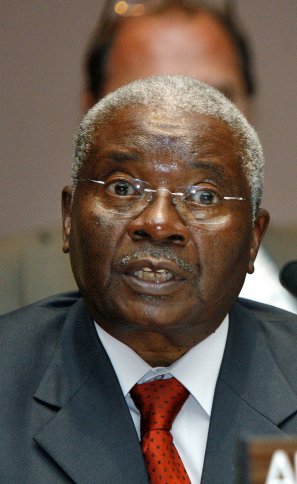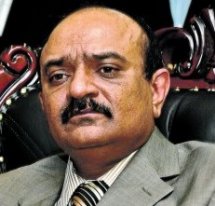|
Mozambique Economy - Development | Politics | Society Mozambique drug barons "protected by President"
Former Mozambican President Joaquim Chissano and current President Armando Guebuza are put in direct connection with the country's largest narco-traffickers in several wires from the US embassy in Maputo, now published by Wikileaks.
Several sources had confirmed that customs chief Tivane "openly demands and receives payoffs from importers," including Mr Suleiman. Mr Tivane was said to have "amassed a personal fortune in excess of a million dollars, to include numerous investments around Mozambique." One embassy source had stated that, when visiting Mr Tivane's "expansive home to deliver a bribe he noticed that the bureaucrat had solid gold fixtures in his bathroom." Even the ruling party could be directly involved in drug smuggling, it was indicated. At the ports, FRELIMO was said to have its own clearing agent that handles FRELIMO and Mr Suleiman's business. "The clearing agent chronically under-invoices items, avoids the 17 percent VAT, and also has an arrangement with Tivane's Customs authorities to bypass the ports' mandatory scanning." US embassy staff had addressed their concerns about the growing narco-traffic in Mozambique with officials at all levels. However, lower officials wanting to address the problem said they were confronted with corruption at high levels. A high level law enforcement official in private had told the US embassy that "some fish are too big to catch." Meanwhile, drug traffickers "routinely bribe Mozambique police, immigration and customs officials in order to get the drugs into the country," the US embassy reported. "A high level law enforcement official admits most police drug seizures are not reported to his office because traffickers and police make on-the-spot arrangements to allow the drugs to continue to flow." Police and customs officials routinely detained drug smugglers and "are then bribed to release the smugglers and the drugs are confiscated and resold," the report goes on. Senior members of the ruling FRELIMO party were "seeking to hide the level of corruption from the press, the electorate and the international donor community," US Charge d'Affaires Todd Chapman reported in 2009. A source close to President Guebuza in January this year added that "in the past few years there have been several embarrassing situations in which shiploads of drugs, primarily hashish and heroin have washed ashore; however, the media is usually afraid to report on such incidents because no one wants to become another Carlos Cardoso." Mr Cardoso was courageous Mozambican journalist who was murdered in 2000 while investigating a massive bank fraud tied to then-President Chissano's family. The independent newspapers 'Zambeze' and 'Savana' however have made some reports on the issue. By staff writers © afrol News - Create an e-mail alert for Mozambique news - Create an e-mail alert for Economy - Development news - Create an e-mail alert for Politics news - Create an e-mail alert for Society news
On the Afrol News front page now
|
front page
| news
| countries
| archive
| currencies
| news alerts login
| about afrol News
| contact
| advertise
| español
©
afrol News.
Reproducing or buying afrol News' articles.
You can contact us at mail@afrol.com









